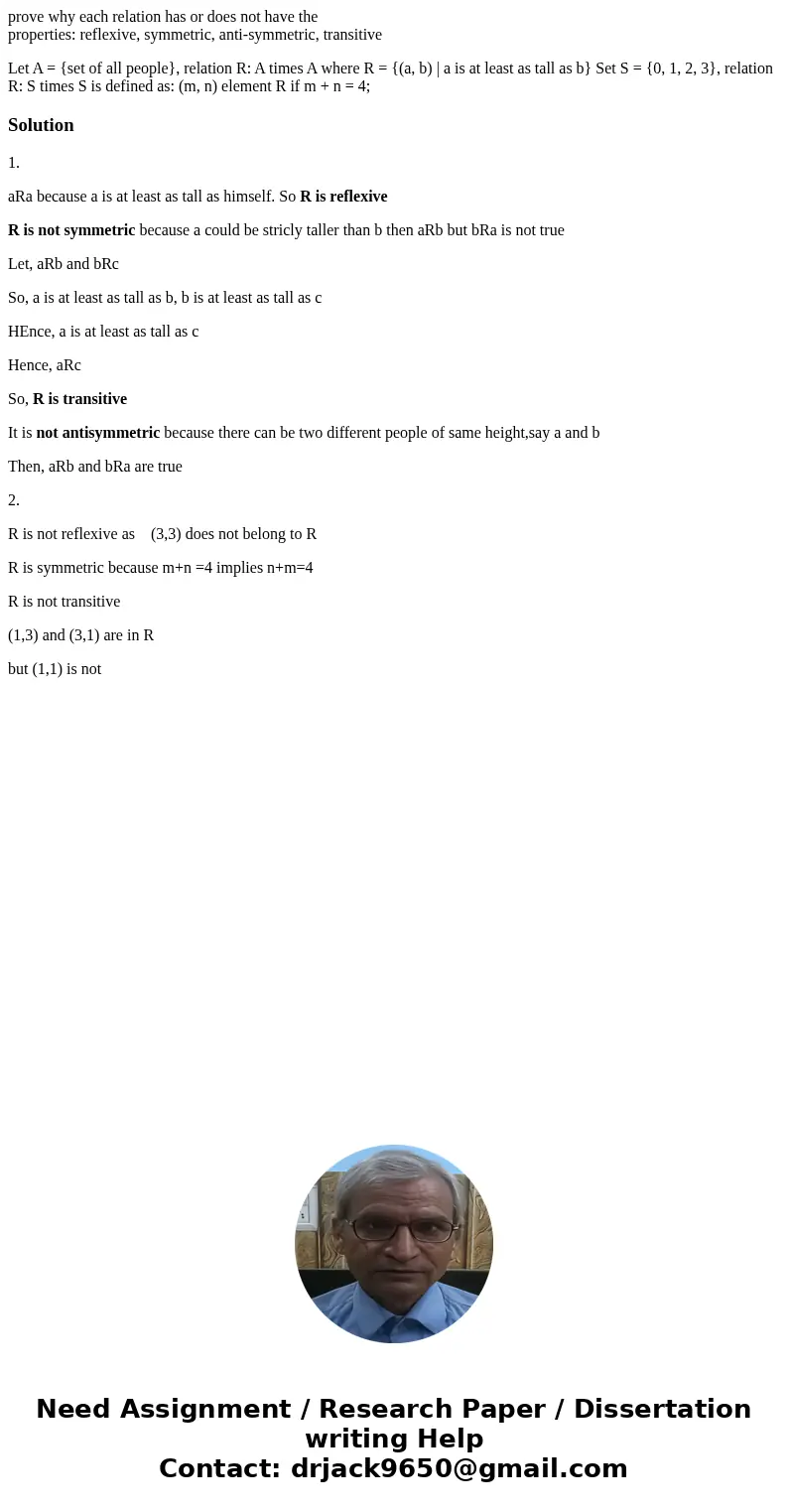prove why each relation has or does not have the properties
prove why each relation has or does not have the
properties: reflexive, symmetric, anti-symmetric, transitive
Solution
1.
aRa because a is at least as tall as himself. So R is reflexive
R is not symmetric because a could be stricly taller than b then aRb but bRa is not true
Let, aRb and bRc
So, a is at least as tall as b, b is at least as tall as c
HEnce, a is at least as tall as c
Hence, aRc
So, R is transitive
It is not antisymmetric because there can be two different people of same height,say a and b
Then, aRb and bRa are true
2.
R is not reflexive as (3,3) does not belong to R
R is symmetric because m+n =4 implies n+m=4
R is not transitive
(1,3) and (3,1) are in R
but (1,1) is not

 Homework Sourse
Homework Sourse